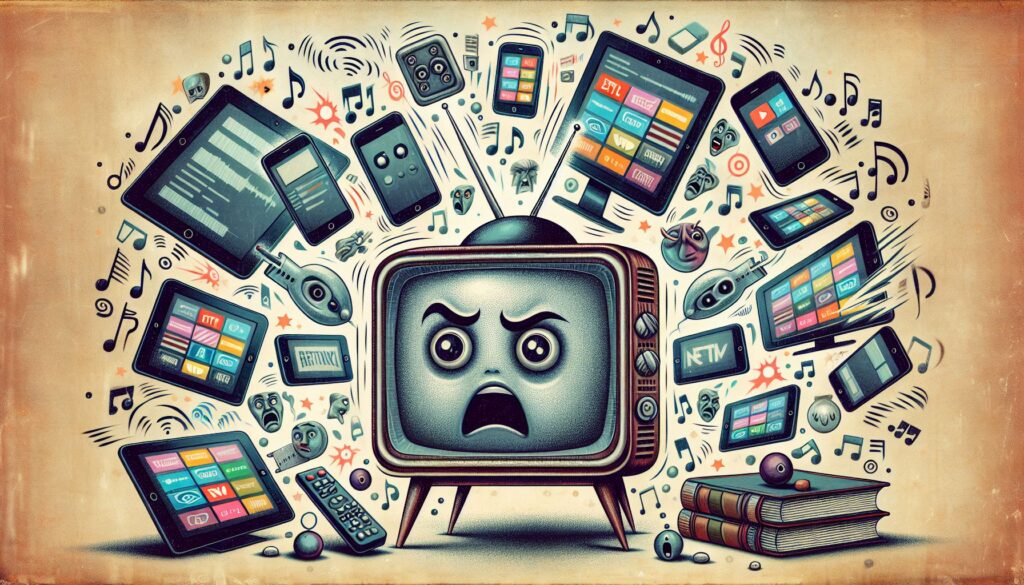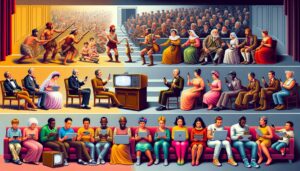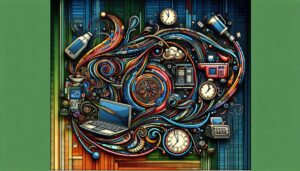Streaming Revolution: Disruption in Entertainment Industry

Have you ever wondered why your favorite artist dropped their latest album directly on Spotify, or why the buzzworthy new film skipped the cinemas and made its debut on Netflix instead? The entertainment industry is being reshaped right before our eyes, owing largely to the growing dominance of streaming platforms. In today’s digital era, the combination of cutting-edge technology and our constant craving for on-demand content has led to dramatic shifts in how we consume media.
The rise of streaming services like Netflix, Amazon Prime, Disney+, and Spotify has significantly altered the landscape of film, television, and music industry. It marks a notable transition from physical distribution models such as DVDs and CDs, or even traditional broadcasting, towards more versatile, accessible, and digitized media consumption.
Platforms like Netflix or Hulu have redefined the film and TV industry by facilitating direct access to an exceptional array of content. These streaming giants not only offer instant access to films and TV shows but are also venturing into producing original content. Lessons from Netflix’s ‘The Crown’ or ‘Stranger Things’ exemplify how these original series have earned critical acclaim and a devoted viewer following, attesting to the power of streaming platforms.
In music, streaming platforms like Spotify, Apple Music, and Tidal change the way consumers discover new music, artists interact with their fans, and music is distributed. The current generation won’t have to look through shelves of CDs in a music store to explore new artists or genres. Today, tailored playlists and recommendation algorithms introduce music enthusiasts to new tunes and obscure artists they are likely to enjoy, aiding music discovery.
Still, the streaming revolution isn’t just about convenience. It brings about thought-provoking social and ethical implications. The question of how creators are compensated in this new economic model remains pervasive. For instance, in the music industry, artists are paid per stream, a fraction of a cent, which has driven a heated debate about compensation fairness.
Moreover, the dominance of streaming platforms and the abundance of content raise concerns about increasing homogenization of culture and the risk of creating ‘echo chambers’ of content — all dictated by powerful recommendation algorithms that decide what we see or don’t see.
From a consumer’s point of view, ‘streaming’ represents liberty — the freedom to consume content at one’s own pace, anytime, anywhere. However, from a creator’s perspective, it is often synonymous with financial worry and the pressure to keep up with ever-changing algorithms.
In light of these considerations, we must ask ourselves: Is streaming the future of the entertainment industry? Current trends point in that direction. The increasing ubiquity of high-speed internet across the globe and the proliferation of smartphones may only hasten streaming’s ascent.
The shift towards streaming isn’t only disrupting how movies, TV, and music are experienced. It also fundamentally changes how these creative expressions are made, shared, and monetized, heralding a new era in the entertainment industry. As consumers, we’re front-row spectators in this digital revolution, bearing witness to the unprecedented transformation of our media consumption habits.
The rise of the streaming age has indeed unmoored the entertainment world from its traditional foundation. But as we embrace this inevitable digital metamorphosis, it’s also crucial to discern its ethical implications and strive for a futuristic model that doesn’t stifle creativity and fair rewards. With an open dialog and conscious engagement, we can navigate these uncharted waters as the future of mass media unfolds.






